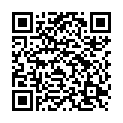|
|
|
| Module code: IBB-640 |
|
|
2C (2 hours per week) |
|
3 |
| Semester: 6 |
| Mandatory course: yes |
Language of instruction:
German |
Assessment:
Executive summary of the thesis and presentation (can be repeated semesterly)
[updated 04.02.2020]
|
IBB-640 (P420-0249) International Business, Bachelor, ASPO 01.10.2020
, semester 6, mandatory course
|
30 class hours (= 22.5 clock hours) over a 15-week period.
The total student study time is 90 hours (equivalent to 3 ECTS credits).
There are therefore 67.5 hours available for class preparation and follow-up work and exam preparation.
|
Recommended prerequisites (modules):
None.
|
Recommended as prerequisite for:
|
Module coordinator:
Prof. Dr. Petra Garnjost |
Lecturer:
Prof. Dr. Markus Münter
[updated 26.04.2024]
|
Learning outcomes:
After successfully completing this module, students will be able to:
- define the research question and research design of their thesis,
- explain their methodology,
- analyze academic literature in relation to their research question,
- interpret their findings,
- critically reflect on the experiences they have made during their semester abroad,
- present their results and answer,
- conduct a professional and intercultural discussion with a critical audience.
- increase their social and personal skills such as confidence in themselves, self-directed learning, and self-reflection, as well as social skills auch as communication and handling criticism.
[updated 06.03.2020]
|
Module content:
The colloquium is organized as a block seminar where students explain and defend the topic of their thesis. By doing so, they present their research question, the results of their literature analysis, explain their research method and illustrate their findings.
They are expected to discuss the topics of their fellow students, based on executive summaries they have been provided with.
In addition, they will be expected to give an overview of the experiences they gained during their semester abroad.
[updated 04.02.2020]
|
Teaching methods/Media:
Oral presentation, discussion
[updated 26.01.2020]
|
Recommended or required reading:
Depends on the topic of the bachelor thesis.
[updated 06.03.2020]
|

